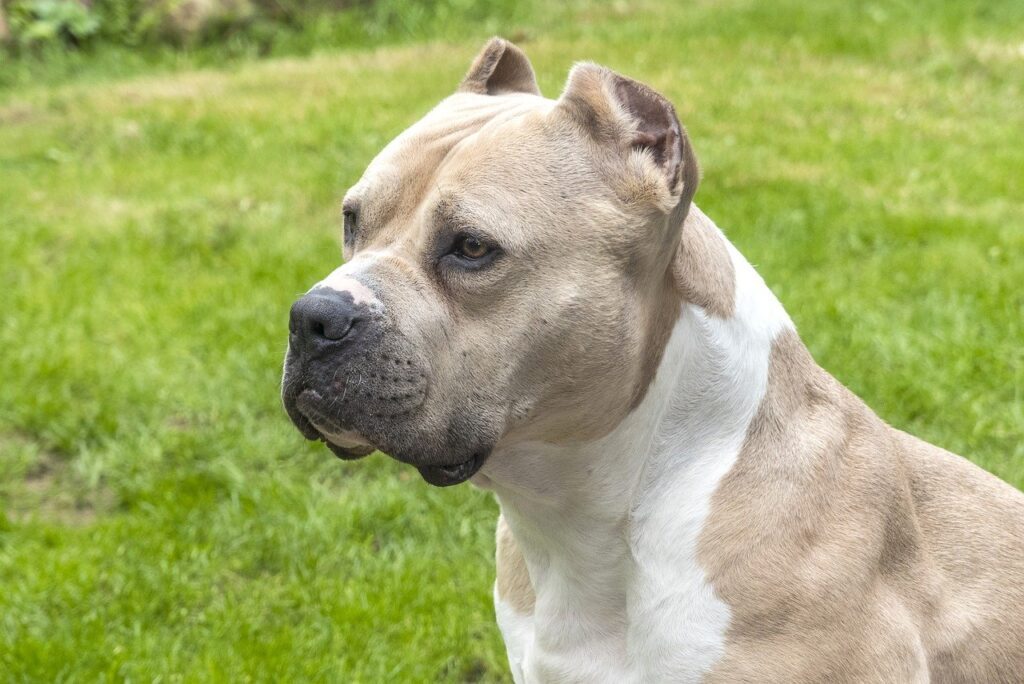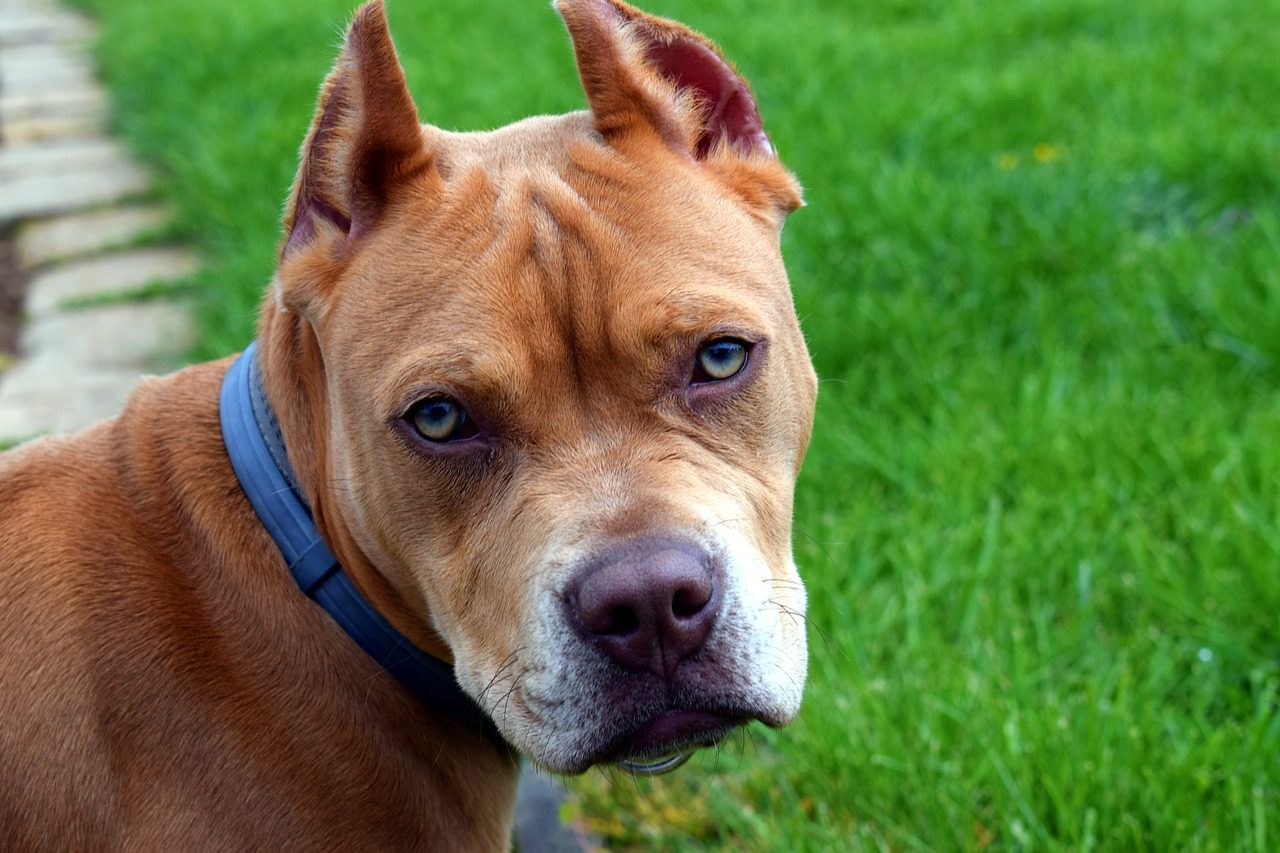Pitty, bullie, velvet hippo.
Whatever you call it for your pitbull, as a pitbull’s parent you’re probably aware of their specific requirements, as well as their the devoted and humorous personalities .
Due to pitbulls powerful and lean physiques One of their special requirements is a customized diet.
Although all dogs require an appropriate diet, pitbulls benefit from an approach that is more specific.
So, which is the best food for pitbulls ?
We’ll discuss the best food for pitbulls and the basics of nutrition, typical health concerns to be aware of when you’re pet parents, as well as the recommended ingredients you should look for in your dog’s food.
Best food for Pitbulls
Pitbull Nutrition: The Basics You Should Know
Pitbulls are not officially recognized as such by American Kennel Club, but American Staffordshire terriers are.
Each American Staffordshire terrier is technically able to be classified as an American pitbull terrier. However, not all American pitbull terrier can be considered so.
This being said the pitties’ nutritional guidelines generally match those of American Staffordshire terriers. A balanced diet can influence their energy levels, growth and overall well-being.

Size and Build
As a big dog breed Pitbulls are renowned for their athleticism and strength due to their wide and muscular and imposing stance.
Due to their size they be a success in the field in a variety of different sports.
Pitbulls weighing males generally weigh between 35 to 60 pounds, and female pitbulls typically weigh 30-50 pounds.
Pitbulls are renowned for their chests that are deep and hindquarters that are well-developed, as well as their large heads and broad necks.
Due to their strong build pitbulls, particularly the most active ones, could require more protein. Therefore, take these into consideration when deciding on the right diet for pitbulls.
Protein and Caloric Needs
Pitbulls, as mentioned earlier, may require additional calories and protein in their diets to maintain their level of activity and maintain their muscle health.
However, it is important to ensure that any increase in calories is proportional to an increase in protein. If not, your pitbull might become more chubby than buff!
It is the Association of American Feed Control Officials (AAFCO) recommends 18 percent protein in a dog’s diet in order to ensure their health.
If you have a pitbull the amount could be up to 20%-22 percentage.
Activity Levels
All dogs require exercise all day.
Pitbulls, however require a lot of exercise. They are energetic dogs who generally require between one and two hours of physical activity per day.
It can differ depending on the age of your dog and physical capabilities, however things such as walks, playing in the yard, or at an animal park, as well as tricks training can all count as exercises.
The most important thing is to ensure that your dog’s level of activity is in line with the they’re eating.
If, for instance, you have a senior dog that isn’t as active, they’ll not need more food than an active pitbull dog who’s constantly in motion.
Common Health Concerns in Pitbulls Related to Diet
The diet of your dog’s can have a connections to health issues. All breeds are susceptible to health problems, but those particular to pitbulls are hip dysplasia, allergies and heart problems. A well-chosen diet can help prevent or manage these concerns.
Hip Dysplasia
Because pitties have distinct hips, so hip dysplasia is a very common issue.
Hip dysplasia is a condition that causes the bone of the hip to move out of its normal location. The condition may develop gradually over time and then become painful as it gets worse.
Alongside an appropriate diet for your puppy there are specific nutrients that will help assist in promoting joint and bone health.
Omega-3 fats, particularly EPA and DHA are essential for bone, joint as well as hip and joint health.
If you want to include a higher dose of EPA and DHA in your dog’s diet, consider consulting the vet.
Allergies
There are many breeds of dogs that can suffer from allergies.
It doesn’t matter if it’s food or environmental allergies are a problem, they can impact the quality of life of your pet.
Allergies can cause skin irritation, and are common among pitbulls because of their short coats.
Pitbulls are more exposed than dogs with longer coats, which means they are more likely to get into contact with allergens.
Food allergies can be an issue for pitbulls. They could cause gastrointestinal issues, skin rashes or itching. Common pitbull food allergies include:
- Meat, including lamb, beef, chicken or venison, pork or rabbit
- Other animal proteins, such as eggs or dairy
- Wheat
- Gluten
- Soy
- Artificial flavorings, preservatives and flavors
Heart Conditions
Heart problems in pitbulls, particularly dogs typically result from an inherited predisposition.
Some common heart conditions that pitbulls suffer from include the congestive heart condition, pulmonic stasis and canine dilated cardiac myopathy.
Although only a tiny percentage of dogs are affected by cardiovascular disease, it’s vital to think about your dog’s heart health in relation the food they eat.
Along with helping to improve joint health and hip mobility, omega-3 fatty acids EPA and DHA can benefit your pet’s heart. These nutrients are available in the fatty fish such as tuna, salmon, and Sardines.
Macronutrients Your Pitbull Needs
Macronutrients are the essential nutrients that dogs require in greater quantities, which give them energy for a long time. Your dog should be fed an appropriate mix of high-quality protein, carbs and fats to ensure their health.
Protein
Protein is among the most important nutrients to maintain your dog’s muscle strength, size and endurance. Protein-rich foods that are good for your pet could be found in lean meats like lamb, beef, and chicken along with fish and eggs.
Healthy Fats
In combination with carbs and protein, healthy fats are vital for the production of energy in dogs and development of cells, the functioning of the brain, hormone regulation as well as skin and coat health and absorption of nutrients.
Some of the most beneficial healthy fats to add into your dog’s diet is fatty acids like flaxseed oil and fish oil, both of which are omega fats.
Animal fats such as beef or chicken can aid in the health of your dog.
Carbohydrates
Carbs are an essential part of every dog’s diet, but particularly in pitbulls. They are a great source of energy, and may even aid in the digestion of their dogs..
Certain carbs are more beneficial than others, however. Avoid foods that are processed, such as mealtimes and grain products that contain starch. Instead, opt for whole grains such as brown rice, and carb-rich vegetables like sweet potatoes.
Also, you should consider your dog’s level of activity into account. Dogs who are constantly wandering from napping spots to another are likely to require less carbs than active dogs.

Ingredients to Look For and to Avoid in a Pitbull’s Diet
Alongside taking a look at the various nutrients in the dog’s food You should also pay attention to the ingredients that are specifically listed.
Good dog food will contain many natural nutritious and healthy ingredients and low-quality food items contain a large amount of additives and cheap sources of nutrients.
Ingredients To Look For
Fish, lean meats as well as antioxidant-rich fruits omega-3s, vegetables and lean meats all have a place your dog’s diet. Some examples include:
- Whole turkey, beef, chicken and lamb are able to offer clean, high-quality energy.
- Whitefish and salmon are the natural sources for omega-3 fats which are beneficial for the health of your coat, skin joints, and coat.
- Blueberries as well as blackberries and strawberries are rich in Vitamin C and E. They can protect your pet against the damage to cells that is caused by the free radicals.
- Fruits and vegetables like peas, carrots and pumpkins, as well as spinach, sweet potatoes, and squash can supply your dog with plenty of minerals and vitamins that can improve their overall well-being.
Ingredients To Avoid
On the other hand there are certain items to be avoided, for example:
- However, butylated Hydroxyanisole (BHA) is a chemical preservative that is used in the preparation of oils and fats could negatively affect the dog’s digestive system and can cause irritation to the eyes and skin.
- Chicken meal and other meat-based meals are meat by-products that are of low quality prepared and cooked at extremely high temperatures before turning into powdery meals. They may cause stomach upset.
- White flour can be a common carb that could increase the blood sugar levels of your dog. The ingredient doesn’t ensure that your dog is full, and can result in them eating more than they should, increasing obesity risk.
- Rendered fats and vegetable oils aren’t optimal fats. They could cause inflammation in some dogs. This can adversely affect their hips and joints.
So, these are some of the best food for pitbulls, you can explore this blog to know more about dog foods.

